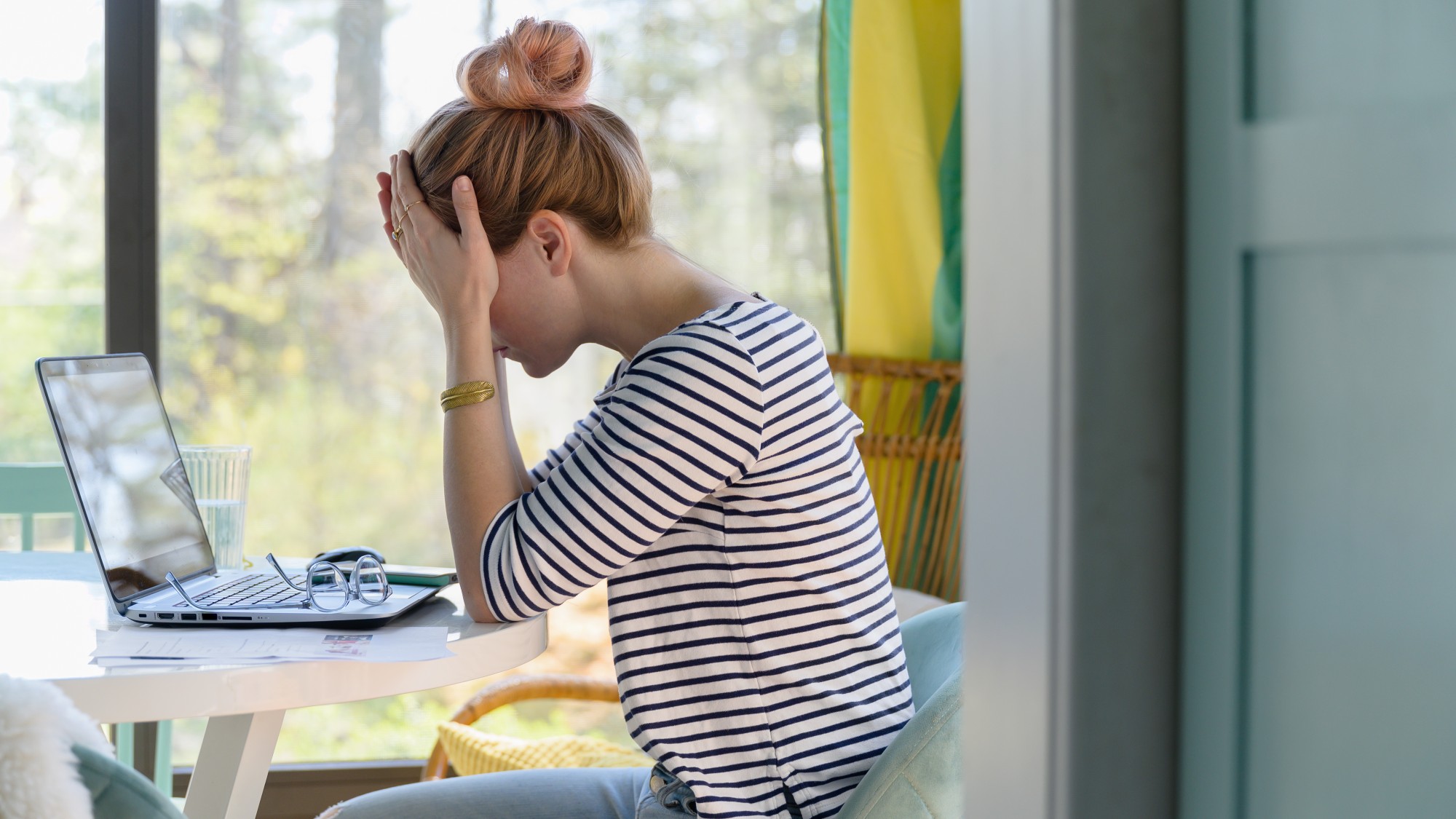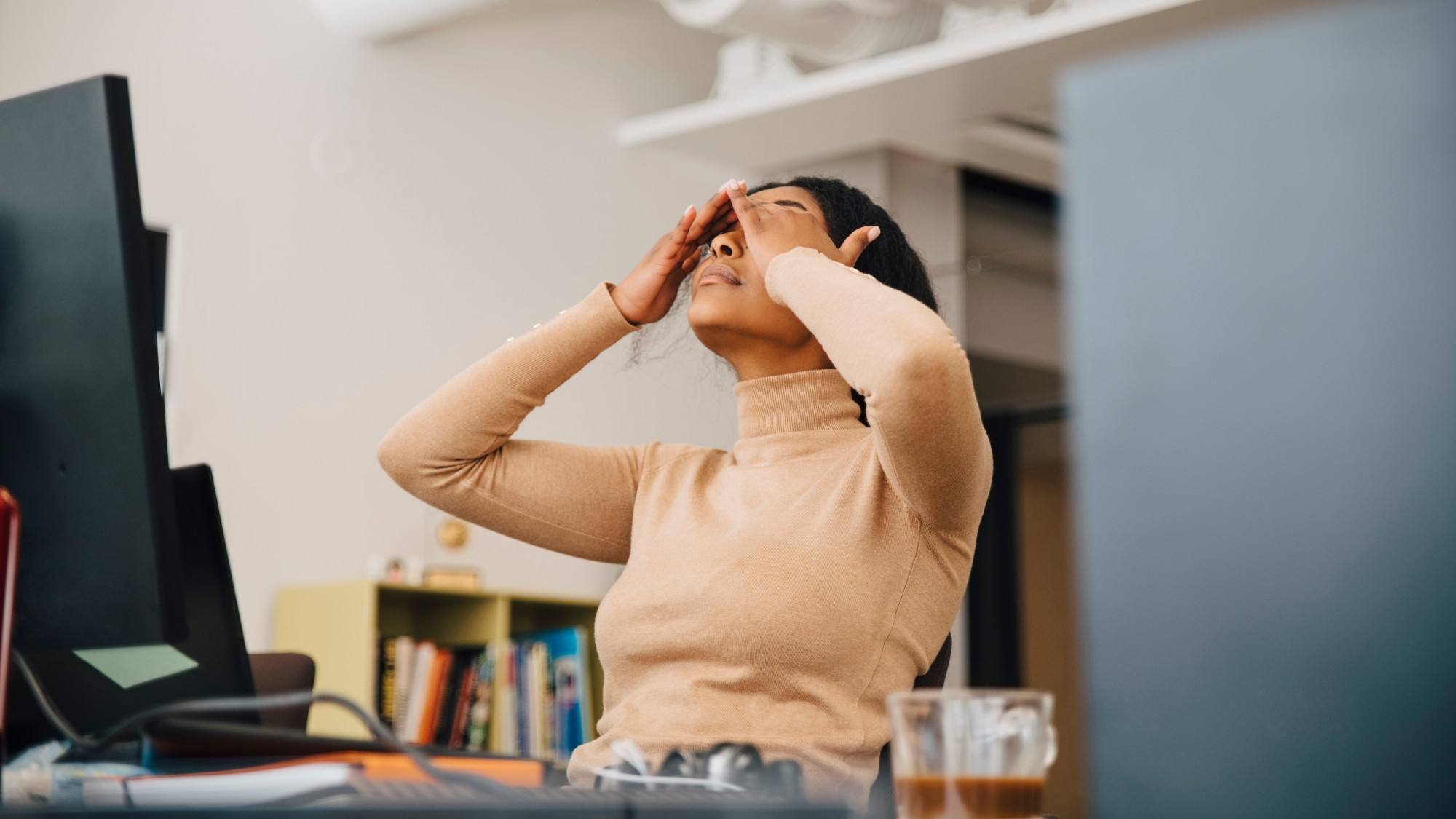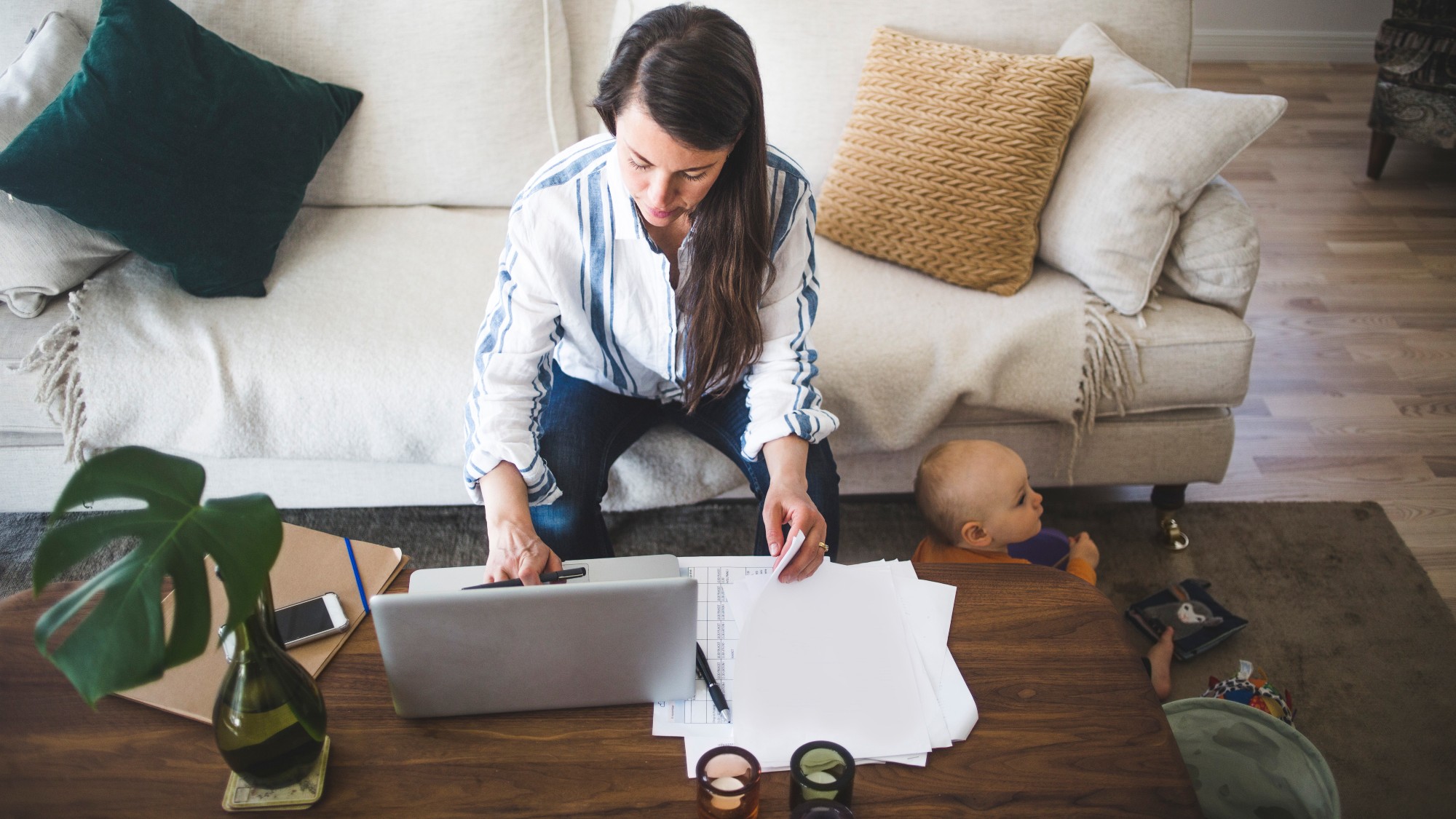Burnout will be a huge health crisis in 2021 – here’s how to beat it
Millennials are those most prone to this most modern of mental health crises. Here's how to stop 2021 from being a total burnout.


Celebrity news, beauty, fashion advice, and fascinating features, delivered straight to your inbox!
You are now subscribed
Your newsletter sign-up was successful
Millennials are those most prone to this most modern of mental health crises. Here's how to stop 2021 from being a total burnout.
Burnout – or chronic stress – is far from being a new condition. So just why are three quarters of HR leaders worried about it now?
Thanks to pandemic-induced working from home, many think the risk of suffering from bouts of burnout has increased because of a new culture of 'e-presenteeism' – the feeling that you should always be plugged in and online, even when it's well past your hours.
Sound familiar?
And with WFH, Zoom calls and Slack chats here to stay, experts are predicting that burnout is set to prove a huge crisis when it comes to workers' mental health. According to new research from flex office provider TOG (The Office Group), 32 is the age most likely to experience burnout; with contributing factors including working longer hours and being unable to separate work and personal life.
But with a new year on the horizon, and a new opportunity to reset (pandemic withstanding), we ask four experts to weigh in on beating the B word.
Burnout and blurred lines
A business coach who’s worked with hundreds of business owners and executives, Shilpa Panchmatia is currently noticing a huge rise in burnout. 'The line has blurred between work and play. With DMs from the boss and project management system updates clicking on our smartphones day and night we’re always ‘on’ and many employers expect that level of availability,' says Panchmatia.
Celebrity news, beauty, fashion advice, and fascinating features, delivered straight to your inbox!
'The extra workload and pressure due to redundancies, plus Covid anxiety and lack of stress-busting holidays has left many running on empty.'

New entrepreneurs who’ve launched post-redundancy are also risking burnout. 'They’re working longer and longer hours to make a success of it, but they’re operating in high uncertainty with limited safety nets,' says Panchmatia. 'People are very insecure and feel under pressure to be always “nexting”. That's doing the next thing to get them visible. They're pushing themselves to the edge. There’s a link between passion and burnout and when that passion becomes obsessive it can be dangerous.'
Having experienced burnout herself, Shilpa’s advice is to put strategies in place now before it becomes overwhelming. 'Create good habits now. Have a structure, a hard reset - no work after 6pm. Keep good relationships and networks, invest in personal time and make sure you have routines. If you’re feeling guilty that you’re not doing enough, have a strong word with yourself. Becoming a workaholic can lead to serious health issues.'
Knowledge is power, so it's important to know the risk factors so you can spot it from a mile off. 'Burnout is a sign of our times and the result of constant high levels of stress that we are all under,' says Dr Bella Smith, (@thedigitalgp on Instagram). 'I'm a GP and I'm seeing it more and more. Please see your GP if you have any concerns about your mental, physical or emotional health.'
What is burnout?
'Burnout is a state of physical, mental and emotional exhaustion caused by prolonged and excessive stress and lack of support. It can lead to low achievement and inefficiency at work,' explains Dr Smith. 'In burnout, there are often overwhelming feelings of helplessness and resentment. If left untreated relationships and health may also suffer.
'Work is the biggest contributor to stress in the women I work with,' reveals Chloe Brotheridge, an anxiety expert, hypnotherapist and author. 'It can seem as though we're expected to be "on" all the time, answering emails at all times of day and night.
'Burnout happens when we've pushed ourselves so hard that our body forces us to stop. There's an inability to continue with normal life when one is suffering from burnout.'
What are the risk factors?
'There are many factors that can lead to burnout: having a heavy workload, including overtime work; chronic workplace stress; not being able to meet constant demands; and always feeling under pressure to achieve,' adds Dr Imogen Bexfield, Medical Director of White Swan Aesthetics.
'Burnout is not simply caused by long working hours, but can occur when a person does not feel in control of how their job is carried out, or is not supported in their career or at home,' says Dr Smith. 'Burnout can creep up on you. Quite often it takes someone else to notice you're really not yourself or coping as you normally would.'
The tell-tale signs and symptoms
Spotting the early warning signs of burnout can be difficult, as the condition develops over weeks or months, as response to work-related stress evolves. So, what are the tell-tale signs?
'Being in fight-or-flight mode most of the time, waking up feeling exhausted even after eight hours sleep, fatigue, a lowered immune system and irritability could all be signs you're could be on your way to burning out,' Brotheridge says. Emotional symptoms include feeling guilty about not working hard enough, feeling negative, trapped and detached from others.

Watch out for regular coughs and colds, or a change in your appetite. Some people describe aches, pains and headaches from constant stress. These are all signs of potential burnout.
Burnout recovery
The most important thing to do is to recognise burnout. It then needs to be managed in a way that looks at lifestyle, workload and mental health.
'If you feel you have any symptoms, be sure to see your GP,' says Dr Bexfield. 'Your doctor can help with time off work if required or, in some cases, medication. If left untreated it can lead to depression and other stress-related illnesses.'
Try to find time to exercise regularly, even if it is just a walk outside to get some fresh air. Cut down on alcohol and caffeine and limit your time on social media. Focus on relaxation, try yoga, meditation or mindfulness. Communicate with your family, friends and work colleagues for support – burnout can happen to anyone of us at any time and makes us human.
'Maintaining a work/life balance is crucial,' says Dr Bexfield. 'Try to schedule in time for yourself, catch up with friends or just take some out to relax and breathe. Celebrate small achievements by writing down how you are feeling so you can reflect on how far you've come. Recovery can be slow so don’t be too hard on yourself.'
Remember, if you feel exhausted and overwhelmed there is always help and support available (even if it doesn't feel like it). The first step is that all-important GP appointment.
We'll leave you with Chloe Brotheridge's wise words: 'Remember you are more than your achievements and 'being productive' is not the road to lasting happiness. Connect back to what really matters to you and make time for the simple pleasures in life that can only be enjoyed when we slow down.'
Maria Coole is a contributing editor on Marie Claire.
Hello Marie Claire readers – you have reached your daily destination. I really hope you’re enjoying our reads and I'm very interested to know what you shared, liked and didn’t like (gah, it happens) by emailing me at: maria.coole@freelance.ti-media.com
But if you fancy finding out who you’re venting to then let me tell you I’m the one on the team that remembers the Spice Girls the first time round. I confidently predicted they’d be a one-hit wonder in the pages of Bliss magazine where I was deputy editor through the second half of the 90s. Having soundly killed any career ambitions in music journalism I’ve managed to keep myself in glow-boosting moisturisers and theatre tickets with a centuries-spanning career in journalism.
Yes, predating t’internet, when 'I’ll fax you' was grunted down a phone with a cord attached to it; when Glastonbury was still accessible by casually going under or over a flimsy fence; when gatecrashing a Foo Fighters aftershow party was easy-peasy-lemon-squeezy and tapping Dave Grohl on the shoulder was... oh sorry I like to ramble.
Originally born and bred in that there Welsh seaside town kindly given a new lease of life by Gavin & Stacey, I started out as a junior writer for the Girl Guides and eventually earned enough Brownie points to move on and have a blast as deputy editor of Bliss, New Woman and editor of People newspaper magazine. I was on the launch team of Look in 2007 - where I stuck around as deputy editor and acting editor for almost ten years - shaping a magazine and website at the forefront of body positivity, mental wellbeing and empowering features. More recently, I’ve been Closer executive editor, assistant editor at the Financial Times’s How To Spend It (yes thanks, no probs with that life skill) and now I’m making my inner fangirl’s dream come true by working on this agenda-setting brand, the one that inspired me to become a journalist when Marie Claire launched back in 1988.
I’m a theatre addict, lover of Marvel franchises, most hard cheeses, all types of trees, half-price Itsu, cats, Dr Who, cherry tomatoes, Curly-Wurly, cats, blueberries, cats, boiled eggs, cats, maxi dresses, cats, Adidas shelltops, cats and their kittens. I’ve never knowingly operated any household white goods and once served Ripples as a main course. And finally, always remember what the late great Nora Ephron said, ‘Everything is copy.’
